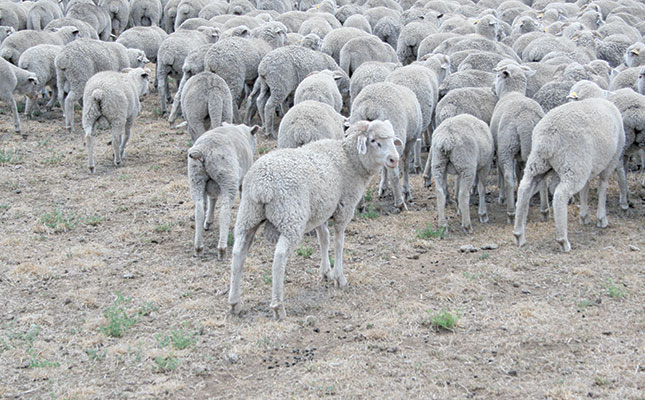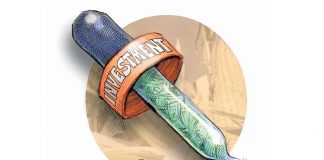
Photo: FW Archive
The Free State, which is often referred to as the breadbasket or granary of South Africa, produces about 70% of the country’s grain, says Dr Jane Buys, safety and risk analyst at Free State Agriculture (FSA).
She adds that 40% of South Africa’s annual maize harvest comes from the province, as do large quantities of its sorghum (37%), soya bean (34%), wheat (18%), groundnuts (35%), sunflower seed (56%), milk (22,4%), wool (23%), cherries (90%), and red meat (14,6%).
“Each farmer in the Free State is responsible for feeding approximately 3 028 people every year. This sector is also a major source of employment, but our research shows that, in 2017 alone, for example, 5 454 jobs were lost in the Free State’s commercial agriculture sector as a result of crime,” she says.
Buys also points out that, according to the Agri SA 2018 National Agricultural Sector Crime Survey, the total direct cost of agricultural crime in South Africa in 2017 amounted to R5,45 billion, while replacement costs as a result of agricultural crime added up to around R2,3 billion.
“Farmers have organised themselves into farm watch and/or control room structures without any financial support whatsoever from the state. The costs involved have never been included in the Agri SA national survey.
“There are currently 24 control rooms in the Free State, and since the running costs differ from room to room, farmers must each pay between R2 000 and R37 000 every year to keep them going,” she says.
In addition, farmers pay to participate in local white/blue light crime prevention initiatives in co-operation with the South African Police Service. According to Buys, an FSA survey conducted in the province’s Virginia district showed that the farming sector there spent between R954 000 and R3,1 million every year on white/blue light initiatives.
Maize and property theft
Another FSA survey showed that commercial farmers in the Free State lost an estimated R234 million to maize theft in 2020. It also indicated that the majority of farmers didn’t employ security guards to protect their field crops, as they claimed it was too expensive to do so.
“Farmers who did employ guards indicated that they hired between six and 12 guards at an additional total monthly salary output of R21 000 to R42 000,” says Buys.
“Some of the farmers near or on the Lesotho border said that they employed between eight and 12 security guards to protect their field crops and livestock from cross-border crimes.
“FSA also conducted a survey among commercial producers in May 2022 on the theft of diesel. Our research revealed that as many as 7,3 million litres of diesel are lost to theft every year in the Free State. If the price of diesel is at R21/ℓ, the annual loss equates to between R76,3 million and R152,6 million.”
Buys adds that the list of property-related crimes is extensive, and includes the theft of copper cables, farming equipment, livestock, and agricultural produce.
All evidence suggests that crimes involving the theft of grain seed, maize cobs, diesel and fertiliser in the province are committed by well-organised syndicates.
According to Buys, the theft of maize cobs is a prime example of how a crime syndicate works: syndicate members surreptitiously invade the maize lands to pilfer the cobs, and seem to know exactly what they need to do and where to deliver the stolen produce.
Stolen items sold to ‘retailers’
“The pickings are then taken to a central point, from where they are sold to ‘retailers’. The role of every person involved in the operation is set out clearly.
“These groups are run as businesses, with profit targets, overheads, and any other challenges and opportunities that legal businesses tend to come across,” she explains.
South Africa’s Prevention of Organised Crime Act (No. 121 of 1998) states that a crime is considered to be organised if it is committed by two or more individuals who profit from the committing of the crime (see page 17). This means that the perpetrators either make a living out of crime or enrich themselves and others within the group. Such individuals have specific modus operandi and operate in particular geographical locations.
The Act expands on its definition of organised crime, stating that each member of a syndicate has a precise role to play or has a designated responsibility. The syndicates also have distinct markets for the stolen property they specialise in.
Greed or need?
Buys believes that a distinction needs to be made between crimes of greed and crimes of need, and that syndicated crimes are obviously based on greed.
“An individual might steal because he or she is unemployed and has a family to feed. Such a person is therefore doing so out of need, and not because of greed.”
She says there are various reasons behind the increase in the number of syndicated
crimes in the agriculture sector. One of the most obvious is that the majority of farms
are situated in remote rural areas. This geographical isolation provides crime syndicates with the perfect opportunity to carry out their plans, and reduces the chance of them being detected.
Millions spent on technology
According to Buys, many producers, farmers’ associations and agricultural unions have installed security-camera systems in their areas in an effort to mitigate crime.
FSA estimates that, so far, the existing camera network has cost the province’s farming sector more than R100 million. Buys says that many farmers have also bought drones and use this technology to prevent the theft of their livestock.
And while the total cost of this kind of technology is difficult to quantify, it’s safe to assume that it runs into millions of rands, she says.
The costs that Free State farmers have incurred so far to erect alarms and other security systems around their houses and properties is also estimated at a total of R100 million. As technology improves, systems must be updated or new ones introduced, which means farmers must spend even more money to protect their lives and livelihoods.
Agri Securitas
Cobus van Zyl, chairperson of the Agri Securitas Trust Fund, says that the issue of the South African farming community’s safety is also one of national food security. Thus, agricultural crime is not just a problem that farmers must contend with; it is an issue that affects the entire country.
This is why he believes it is imperative for farmers to receive the support they need to safeguard themselves, their families and their workers.
Agri Securitas’s board of trustees recently approved a R1,9 million disbursement to support rural safety projects. The trust fund was established in 1999, and since its inception it has contributed more than R16 million to rural safety initiatives, thanks to donations from the private sector.
“The additional costs to protect themselves and their businesses against criminals has a severe impact on South Africa’s farmers, whose profit margins are already paper-thin. And what happens in the Free State happens in the other provinces.
“Lawbreaking, violence and corruption cast a very dark shadow over the long-term sustainability of the entire agricultural value chain. The situation can be likened to that of a boa constrictor suffocating its prey slowly yet effectively. There have been cases of farmers becoming so disheartened by this ever-ticking crime time bomb that they have given up farming,” says Van Zyl.
While the COVID-19 pandemic and the Russia-Ukraine war have underscored the importance of countries being food self-sufficient, the ever-increasing levels of agricultural crime are progressively threatening the self-sufficiency that South African consumers have come to rely on, he concludes.
Email Dr Jane Buys at [email protected], or Cobus van Zyl at [email protected].










